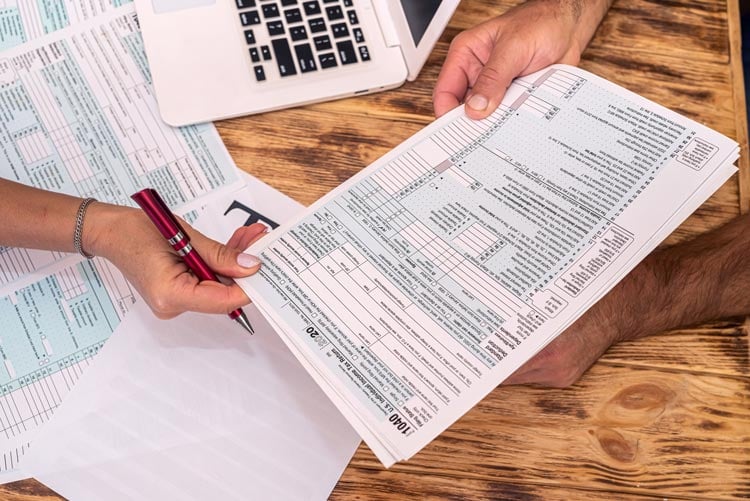
Constructive Receipts are cash transactions and can have negative IRS consequences if not processed correctly. By cash transactions, we mainly mean physical checks. When a company receives a check, there is a delay until the money appears in the company’s bank account. This process is where constructive receipts come in.
Once a check has arrived, it is constructively received. Once it is deposited and funds are available, it becomes an actual receipt. What a company does between receiving and depositing the check can mean the difference between smooth operations and a major headache (compliments of the IRS).
Constructive Receipts and the IRS
From the IRS’s point of review, a received check is considered revenue. From a company’s point of view, it may not count the check as revenue since funds are not available to be used. Once the check is deposited and funds become available, the company counts the check as revenue. You can see the conflict here. But you can also imagine who will win this argument.
Why would a company delay making funds available? Checks received at the end of the year but not deposited until January mean the revenue is counted in the next year. This decreases overall revenue for the taxable year and potentially decreases the company’s tax liability.
The arrival of the check means the business has the potential to access those funds. But it is fully up to the business when it does so (by depositing the check). As we get closer to the end of the year, some companies may delay this potential until the following year.
However, this is like playing a game of chicken with the IRS. If audited by the IRS and it sees a lot of checks deposited at the beginning of the year, which were received at the end of the previous year, the IRS will likely record those checks at the time received (i.e., last year’s revenue). And probably add a penalty for their troubles.
Recording Constructive Receipts
Some firms may record revenue for checks at the time they are received as part of their normal bookkeeping. Others may choose a holding bay entry since the check can’t actually be used until it has been deposited.
This holding bay entry is often an account called Undeposited Funds. It is still a revenue account and shows as revenue on the income statement. Once the check clears the bank, it can be moved out of Undeposited Funds. From an income statement perspective, nothing changes since it is still revenue.
As mentioned above, these entries should also satisfy the IRS since the check is recorded as revenue when it is received.
Constructive Receipts and 1031 Exchanges
In a proper 1031 exchange, the investor will use a qualified intermediary (QI), an unrelated party. The QI ensures that the investor is never in possession of funds. If the investor ever possesses these funds, the 1031 exchange can be disqualified.
Investors can add more safe harbors with qualified trusts or escrow accounts. Some QIs may use these accounts implicitly, but the investor can also request that they be used. Such accounts provide further restrictions on access to funds per IRS regulations.
When an investor comes into possession of 1031 exchange funds, this is called constructive receipt and can disqualify the 1031 exchange, creating a taxable event.
Friends and family or someone the investor has a pre-existing personal or financial relationship with must also not come into possession of funds, as that is also considered constructive receipt.
If you are concerned about constructively receiving funds through a 1031 exchange, it is best to work with an experienced and knowledgeable real estate attorney to ensure your exchange goes smoothly.
This material is for general information and educational purposes only. Information is based on data gathered from what we believe are reliable sources. It is not guaranteed as to accuracy, does not purport to be complete and is not intended to be used as a primary basis for investment decisions. It should also not be construed as advice meeting the particular investment needs of any investor.
Costs associated with a 1031 transaction may impact investor's returns and may outweigh the tax benefits. An unfavorable tax ruling may cancel deferral of capital gains and result in immediate tax liabilities.



